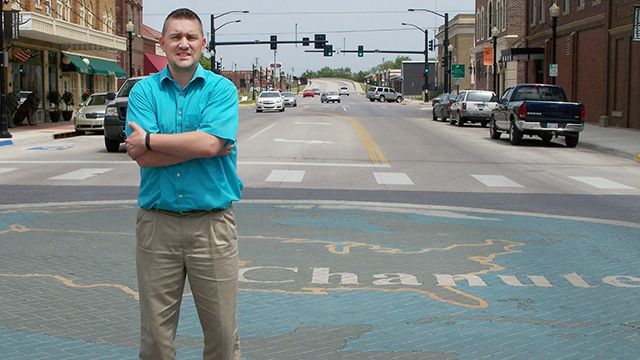
Last week, the city council of Portland, Oregon voted to approve Google Fiber, the high-speed Internet service that Google plans to roll out in 34 cities across the country.
I recently traveled to Kansas City, the first city to get Google Fiber, to talk to people there about the arrival of the service. Google learned some lessons in Kansas City that will likely be useful in Portland, such as lowering the barriers as much as possible to less-affluent “fiberhoods” so that they get service as well.
Fiber is the world-standard medium for high-capacity communications. As far as we know, there is no limit to the capacity of fiber to carry information. America is rapidly turning into the “Pottersville” of the Internet because our local cable monopolies have no incentive stemming from either policy or competition to upgrade their hybrid fiber-coaxial networks to fiber.
Those cable companies sell very expensive high-speed Internet access that is many multiples slower for downloads than Google’s gigabit fiber product – and incapable of the upload capacity that Google will offer. And the vast majority of Americans have no choice other than their local cable company for high-capacity communications. (Note that Google also sells video services – and is likely to have trouble getting access to local sports programming. Why? Because the local cable company controls the rights.)
Adding Portland to the list means there will be another location in the country where Americans are experiencing high-capacity communications at lower costs (gigabit access for $70/month) and, we anticipate, creating new uses for those networks.
Americans don’t know how bad our connectivity story is because we haven’t experienced the alternative. In other countries, such as South Korea, Sweden and Japan, people take very-high-capacity, inexpensive connectivity for granted. It’s just basic infrastructure to them.
What’s useful about Google’s work in Kansas City is that it provides a demonstration case that it’s cost-effective to install and sell fiber connectivity. We didn’t understand that electricity was useful for many domestic purposes until the World’s Fairs of the early 20th century showed us the possibilities. Similarly, here, people living in Kansas City, Austin, Provo and Portland will experience this – and other cities will demand it.
But Google’s entry doesn’t change the country’s stagnant overall communications profile. Even if Google builds out to all the locations it’s now looking at (which is a big if), it will still be covering a very small percentage of the country’s households. Cable covers 98 percent of those households. And we shouldn’t want Google to cover the country — then we’d just be exchanging one monopoly for another.
Cities should be able to make the choice to install dark (unlit, passive) fiber that a host of competitors can use. That will drive down prices, reduce social inequality and prompt very large intangible benefits for communities – just as widespread availability of electricity did. But right now cities in 20 states face major barriers to doing this in the form of state laws – see muninetworks.org for details. Those laws need to be dismantled.
Bottom line: Google’s entry usefully provides evidence that we don’t have to settle for the status quo. But what we really need to do is change our trajectory as a country. We need to set a high standard for fiber installations across the country that foster competition, prompt economic growth and keep us competitive with the rest of the world while redressing existing communication inequalities.
We need to make the policy choices that will make that standard enforceable — including ensuring that the FCC re-labels high-speed Internet access as a utility so that its legal authority is clear (and preempting those anti-city state laws). Then we won’t have to rely on the good graces of Google to make sure Americans have the basic, inexpensive, 21st century communications capacity that is essential to modern life.


